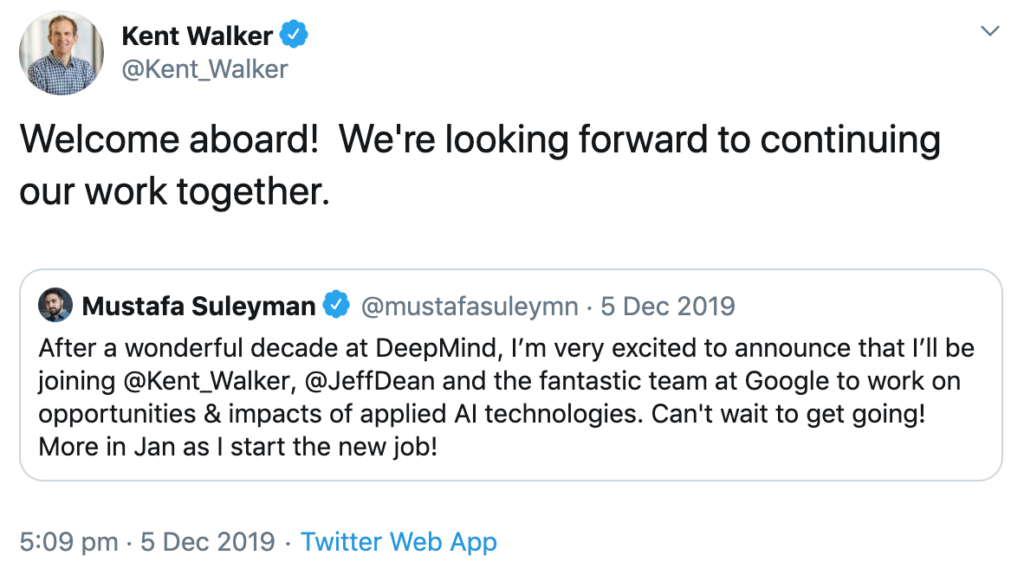
DeepMind co-founder Mustafa Suleyman has announced in a tweet that he will be making the move to Google to help strengthen their AI policies alongside Google policy chief Ken Walker and senior vice president of Google AI Jeff Dean, in January.
Both Walker and Dean welcomed Suleyman to Google in tweets from their account.

At a time where AI policies are changing
Suleyman has a wealth of knowledge in the area and has a history of being a thought leader for AI ethics, AI Policies, and procedures.
This comes at a great time with Google implementing heavy change for their technology and having Suleyman in this position will help Google respect things such as human rights when developing the new technologies and initiatives.
Since the rise of Coronavirus and the lockdown of countries, businesses have been investing heavily in AI with several companies including Autofleet, BrainBox AI, Blue Prism, Revolut, and Templafy successfully raising funds to supercharge initiatives and expand their teams.
Mustafa Suleyman cofounded DeepMind with Demis Hassabis and Shane Legg before Google acquired DeepMind for $400 million in 2014 making it a part of parent company Alphabet. It was after the acquisition that Suleyman moved into the position of ‘Head of Applied AI’.
Although DeepMind has found itself part of controversial initiatives such as the app called ‘Streams’ which was getting personal health records of 1.6 million people in the UK, Suleyman has always echoed how the company’s controversial health division only planned to help and improve the lives of patients, nurses, and doctors.
This has an impact on AI policies and something Sulleyman might be putting under the microscope.
AI has skyrocketed in popularity in the healthcare sector with businesses rushing to fast track AI technology integration into healthcare in a bid to defeat COVID-19 and curve the infection rate.
“Mustafa played a key role over the past decade helping to get DeepMind off the ground, and launched a series of innovative collaborations with Google to reduce energy consumption in data centres, improve Android battery performance, optimise Google Play, and find ways to improve the lives of patients, nurses and doctors alike,” Hassabis wrote in a blog post praising Suleyman’s work.
Suleyman starts his role in January and we’re looking forward to seeing what his efforts do for Google and their AI capabilities.
